Low-carb weight loss meals have gained immense popularity among individuals who want to lose weight without compromising on taste, variety, or satisfaction. These meals are carefully designed to provide the body with essential nutrients while keeping carbohydrate intake low, helping to regulate blood sugar levels and reduce fat storage. Unlike many restrictive diets that leave people feeling deprived, low-carb weight loss meals focus on balance, sustainability, and long-term health benefits.
When people think about dieting, they often associate it with constant hunger or bland food choices. However, with low-carb weight loss meals, the approach is entirely different. These meals are rich in lean proteins, healthy fats, and fiber-packed vegetables, all of which promote fullness and sustained energy. By reducing carbs, especially refined ones, the body naturally shifts toward burning fat for fuel, a process that aids in consistent weight loss.
Moreover, the beauty of low-carb weight loss lies in their adaptability. They can be customized for busy professionals, fitness enthusiasts, or even families with diverse food preferences. From hearty breakfasts to satisfying dinners and even snack options, these meals fit seamlessly into everyday life. They are not just a short-term fix but a lifestyle adjustment that encourages mindful eating and better health. By exploring the principles and recipes behind low-carb weight loss meals, anyone can create a sustainable plan to achieve their weight goals.
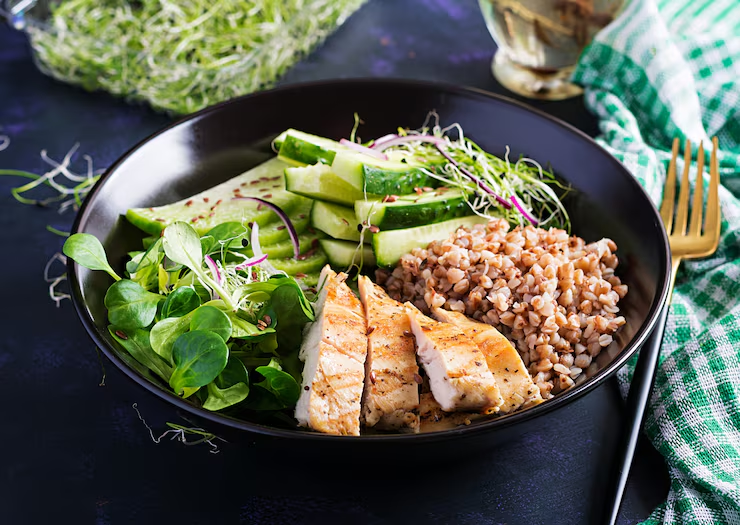
What are Low-carb weight loss meals?
Low-carb weight loss meals are dishes specifically created to limit carbohydrate intake while prioritizing proteins, vegetables, and healthy fats. These meals typically exclude or minimize refined sugars, processed grains, and starchy foods that can trigger blood sugar spikes and fat storage. Instead, they emphasize wholesome, nutrient-dense ingredients that nourish the body and promote fat-burning.
At their core, low-carb weight loss are not just about cutting out carbs; they are about choosing better fuel sources. They allow individuals to replace empty-calorie foods with nutrient-rich options like leafy greens, lean meats, nuts, seeds, and avocados. This change in food choices makes it easier to control cravings, maintain steady energy, and avoid the crash associated with high-carb meals.
Low-carb weight loss meals also appeal to individuals following structured eating plans like ketogenic diets, Atkins, or paleo-inspired approaches. Yet, they remain flexible enough to suit anyone who simply wants to eat cleaner and reduce reliance on processed foods. The essence of these meals is balance: giving your body the nutrients it needs while limiting the components that slow down weight loss.
Why choose Low-carb weight loss meals?
The decision to adopt low-carb weight loss meals is driven by both health and lifestyle benefits. Firstly, reducing carb intake helps stabilize blood sugar levels, which plays a vital role in preventing energy crashes and mood swings. Stable blood sugar also curbs cravings for sweets and high-carb snacks, making it easier to stick to healthier habits.
Secondly, low-carb weight loss meals naturally support fat-burning. When the body does not have excess carbohydrates to rely on, it turns to stored fat for energy. This metabolic shift, often referred to as ketosis in stricter diets, makes weight loss more efficient and sustainable over time. Unlike restrictive crash diets, low-carb meals allow steady, gradual results without leaving you drained.
Lastly, low-carb weight loss contribute to overall wellness beyond weight management. By prioritizing vegetables, lean proteins, and healthy fats, these meals provide essential vitamins and minerals while keeping calorie counts manageable. They also reduce the risks associated with excessive carb consumption, such as obesity, insulin resistance, and cardiovascular problems. Choosing these meals is not just about losing weight—it’s about adopting a healthier, more energized lifestyle.
Key Benefits of Low-carb weight loss meals
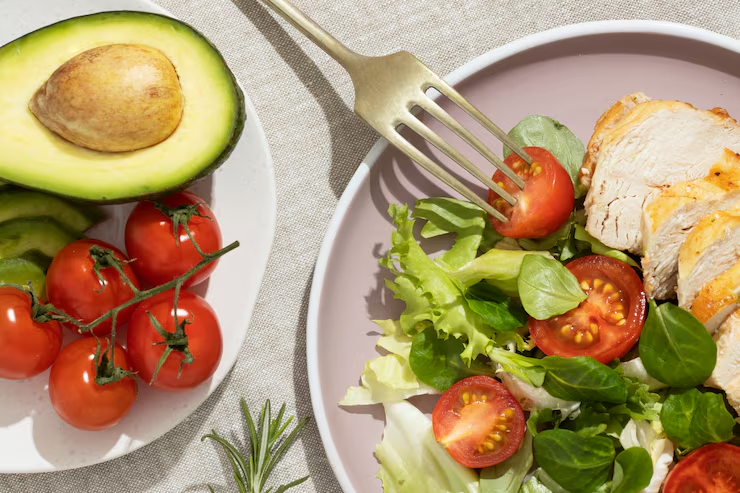
Effective Fat Burning
Low-carb weight loss meals are highly effective in promoting fat burning because they reduce the body’s dependence on glucose from carbohydrates. When carb intake is limited, the body begins to utilize stored fat for energy. This transition not only accelerates fat loss but also helps in maintaining lean muscle mass. Consuming balanced meals rich in proteins and fats ensures that weight loss is steady and sustainable.
Improved Blood Sugar Control
By limiting refined carbs and sugars, low-carb weight loss meals help regulate blood sugar levels. This is particularly beneficial for people with insulin resistance or type 2 diabetes. Stable blood sugar reduces hunger pangs, minimizes mood swings, and decreases the risk of developing chronic metabolic conditions. A diet based on such meals supports long-term health.
Enhanced Satiety and Reduced Cravings
Low-carb weight loss emphasize nutrient-dense foods that are high in protein and fiber. These components create a lasting feeling of fullness, reducing the tendency to overeat. By curbing cravings for sugary or starchy foods, they make it easier to maintain a calorie deficit, which is crucial for weight loss success.
Higher Energy and Mental Clarity
Unlike high-carb meals that often cause energy crashes, low-carb weight loss meals provide steady fuel to the body. The energy derived from proteins and fats is longer lasting, which enhances daily productivity. Many people also report sharper focus and improved mental clarity once they reduce carb intake.
Reduced Risk of Inflammation
Inflammation caused by processed carbs and sugary foods is a hidden obstacle to weight loss and health. Low-carb weight loss meals rely on whole foods and anti-inflammatory ingredients like leafy greens, nuts, seeds, and fatty fish. These foods combat inflammation, supporting better digestion, joint health, and overall wellness.
Sustainable Lifestyle Change
One of the most important benefits of low-carb weight loss meals is their sustainability. Unlike fad diets that rely on extreme restrictions, these meals allow for variety and flexibility. They can be adjusted for different tastes and lifestyles, making them practical for long-term adoption.
Support for Heart Health
Low-carb weight loss meals often include heart-healthy fats such as avocados, olive oil, and fatty fish. These ingredients improve cholesterol levels and reduce the risk of cardiovascular diseases. By emphasizing whole, natural foods, they promote a heart-friendly way of eating that supports longevity.
Tips for Making Low-carb weight loss meals Sustainable
Focus on Meal Variety
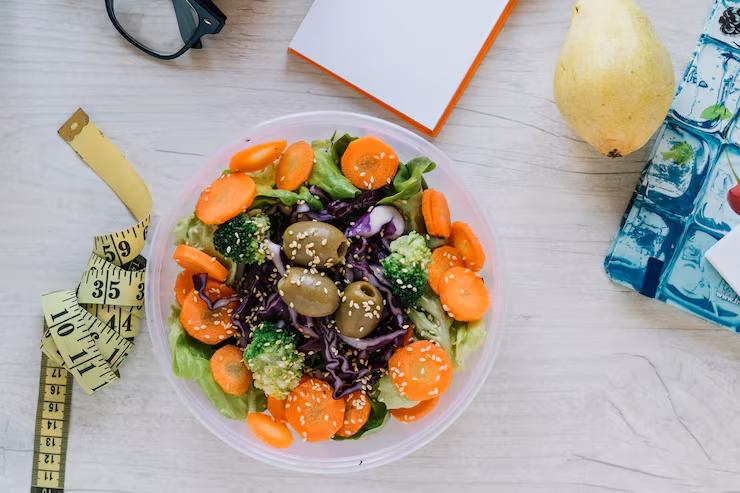
One of the most effective ways to sustain Low-carb weight loss is to keep your menu exciting. Many people abandon their low-carb journey because they get bored with repetitive meals. Instead of sticking to the same chicken and broccoli every day, explore a wide range of proteins, vegetables, and healthy fats. From grilled salmon and zucchini noodles to lettuce-wrapped tacos, the possibilities are endless. This variety not only prevents food fatigue but also ensures that you’re getting diverse nutrients.
Incorporating seasonal produce is another great way to keep your Low-carb weight loss fresh and appealing. Each season offers unique vegetables, herbs, and fruits that can inspire new recipes and keep your meals flavorful. For example, roasted Brussels sprouts in the winter or zucchini boats in the summer can transform ordinary dinners into something special. These creative touches make sticking to your plan far more enjoyable.
Finally, consider experimenting with global cuisines. Low-carb versions of Asian stir-fries, Mediterranean salads, or Mexican-inspired bowls add excitement to your meals. By keeping your Low-carb weight loss meals adventurous and full of flavor, you’re more likely to stay consistent in the long run. Sustainability thrives on enjoyment, not deprivation.
Plan Ahead and Prep Smart
Planning is key when it comes to making Low-carb weight loss meals sustainable. Without preparation, it’s easy to fall back on quick, high-carb convenience foods. Start by creating a weekly meal plan that outlines your breakfasts, lunches, dinners, and snacks. Having a clear roadmap saves time, reduces stress, and keeps you on track with your goals.
Meal prepping can be a game changer. Dedicate one or two days a week to cooking in bulk, portioning your food into containers, and storing them for easy grab-and-go options. For instance, cooking a batch of grilled chicken, roasted vegetables, and hard-boiled eggs ensures you always have staples ready. This approach eliminates last-minute temptations and keeps your Low-carb weight loss meals consistent throughout the week.
Additionally, investing in simple tools like a slow cooker, air fryer, or meal prep containers can make the process even easier. By streamlining the planning and cooking process, you create a system that fits seamlessly into your lifestyle. Sustainable eating doesn’t come from willpower alone—it’s built on smart preparation that makes following Low-carb weight loss meals effortless.
Choose Whole, Nutrient-Dense Foods
The foundation of sustainable Low-carb weight loss meals lies in the quality of ingredients you choose. While it’s tempting to rely on packaged “low-carb” snacks or processed substitutes, whole foods are always the better option. Lean proteins like chicken, turkey, and fish, paired with fresh vegetables and healthy fats, create meals that are both satisfying and nutrient-rich.
Whole, nutrient-dense foods provide the vitamins, minerals, and fiber your body needs to function optimally. Unlike processed items, these foods help maintain steady energy levels and keep you feeling full for longer. For example, a plate of grilled salmon with avocado and spinach delivers far more satiety and health benefits than a pre-packaged low-carb bar. This difference is what makes Low-carb weight loss meals a sustainable lifestyle rather than a temporary fix.
By choosing whole foods, you also reduce inflammation and support long-term health goals beyond just weight management. When your meals nourish your body properly, you’ll feel better physically and mentally. This positive feedback makes it much easier to stick with Low-carb weight loss meals for the long haul, as the benefits become noticeable in daily life.
Incorporate Healthy Fats for Satiety
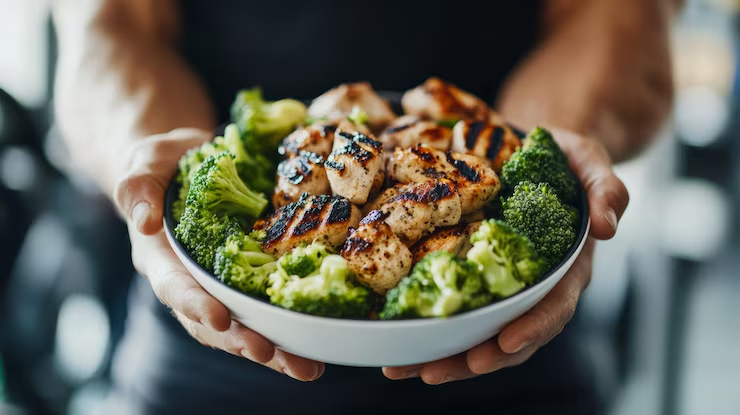
One of the biggest misconceptions about Low-carb weight loss is that they leave you feeling hungry. In reality, when balanced correctly, they can be deeply satisfying. The key is to include healthy fats such as avocados, olive oil, nuts, seeds, and fatty fish. These fats not only enhance flavor but also provide lasting fullness that curbs unnecessary snacking.
Healthy fats play an important role in hormone regulation, brain function, and overall energy. When combined with lean proteins and fiber-rich vegetables, they create well-rounded meals that keep cravings at bay. For example, adding avocado slices to your omelet or a drizzle of olive oil over your salad can transform a basic dish into a nutrient-dense powerhouse. Such small additions make Low-carb weight loss meals easier to enjoy and sustain.
Most importantly, healthy fats make your meals more enjoyable. Sustainability in any eating plan comes from satisfaction, not restriction. When your meals taste delicious and keep you full, you’ll naturally stick with them. Incorporating healthy fats into your Low-carb weight loss meals ensures you maintain balance, health, and pleasure while staying committed to your goals.
Practice Portion Control
Even though Low-carb weight loss meals are nutrient-dense, portion control is still crucial for long-term success. Overeating, even with healthy foods, can slow progress and make your plan feel less effective. Learning to listen to your body’s hunger and fullness signals is an important skill in building sustainable habits.
A helpful strategy is to balance your plate with appropriate ratios: half filled with vegetables, one-quarter with protein, and one-quarter with healthy fats. This ensures you’re getting the right nutrients while avoiding overeating. Using smaller plates, eating slowly, and practicing mindful eating are additional techniques that make portion control feel natural rather than forced.
By mastering portion control, you create a lifestyle where Low-carb weight loss meals support both weight management and long-term health. This approach avoids the extremes of overeating or under-eating, giving you balance and consistency. With time, portion awareness becomes second nature, making your meals both satisfying and sustainable.
Stay Flexible and Allow Treats
Sustainability in Low-carb weight loss meals comes from flexibility. Being overly rigid often leads to frustration and burnout. Instead, allow yourself occasional treats or planned “flex meals.” This doesn’t mean abandoning your goals but finding a realistic balance that makes the lifestyle enjoyable.
For example, if you love pizza, you can enjoy a low-carb version with a cauliflower crust or allow yourself a slice of traditional pizza on special occasions. This flexibility helps prevent feelings of deprivation and keeps you motivated in the long run. Remember, sustainability is not about perfection but consistency.
Allowing treats also reduces the risk of binge eating. When you know that your plan includes room for indulgence, you’re less likely to feel guilty or discouraged. By maintaining a balanced mindset, Low-carb weight loss meals become a lifestyle you can stick with for years rather than a temporary diet.
Keep Hydration a Priority

Hydration plays a significant role in making Low-carb weight loss meals sustainable. Many people mistake thirst for hunger, leading to unnecessary snacking and overeating. Drinking enough water throughout the day helps regulate appetite, supports digestion, and improves overall energy levels.
When following Low-carb weight loss meals, hydration becomes even more important because the body tends to lose water quickly as glycogen stores are depleted. This can sometimes cause fatigue, headaches, or cravings. To counter this, aim for at least 8–10 glasses of water per day and include electrolyte-rich beverages when necessary.
In addition to water, herbal teas and infused waters with lemon, cucumber, or mint can make hydration more enjoyable. Staying properly hydrated ensures that your body functions optimally, making your low-carb journey smoother. It’s a simple but powerful habit that directly impacts the sustainability of Low-carb weight loss meals.
Build a Supportive Environment
Your environment plays a major role in the success of Low-carb weight loss meals. Surrounding yourself with supportive friends, family, or communities can make the journey more motivating. When those around you understand and encourage your goals, it’s easier to stay consistent and positive.
At home, stocking your pantry and fridge with low-carb essentials reduces the temptation to reach for high-carb snacks. Keeping healthy options like nuts, cheese, eggs, and fresh produce within easy reach makes it simpler to stick with your plan. By designing your environment intentionally, you set yourself up for success.
Additionally, joining online groups, forums, or local communities centered around Low-carb weight loss meals can provide extra accountability and inspiration. Sharing recipes, progress, and challenges with like-minded individuals creates a sense of belonging that fuels long-term commitment. With the right support system, sustainability becomes far more achievable.
Conclusion
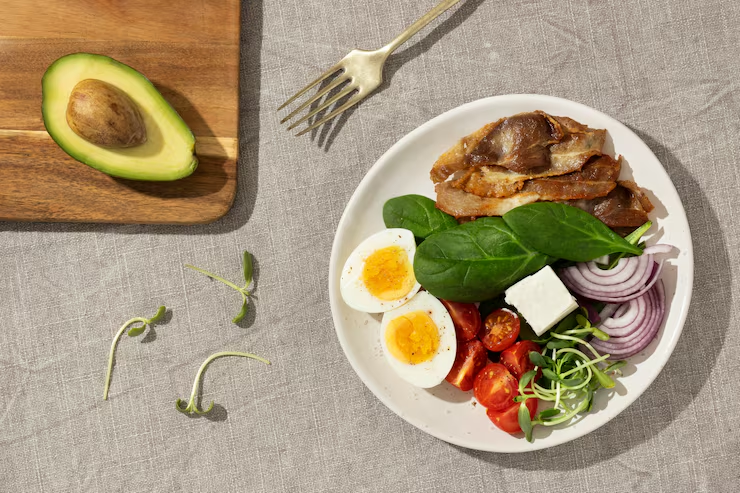
Low-carb weight loss meals are more than just a short-term dietary strategy—they represent a long-term approach to better health, improved energy, and sustainable weight management. By focusing on lean proteins, healthy fats, and nutrient-dense vegetables, these meals empower individuals to control cravings, stabilize blood sugar levels, and encourage the body to burn fat efficiently. Unlike restrictive diets that often lead to feelings of deprivation, Low-carb weight loss prioritize satisfaction and variety, making them easier to stick with over time. They provide a balanced and enjoyable way to reach health goals without compromising flavor or flexibility.
The sustainability of Low-carb weight loss meals lies in the small, intentional choices made daily. Whether it’s planning meals ahead, practicing portion control, staying hydrated, or adding variety to your plate, these habits ensure long-term success. They allow individuals to enjoy their favorite foods in smarter, low-carb versions while still leaving room for flexibility and occasional treats. This balance helps prevent burnout and makes the lifestyle enjoyable rather than restrictive. As a result, people are more likely to stay consistent, which is the true key to lasting results.
Ultimately, adopting Low-carb weight loss meals is not just about shedding pounds; it’s about embracing a healthier, more energized lifestyle. From reducing the risk of chronic health conditions to improving mental clarity and overall well-being, the benefits extend far beyond weight management. By combining practical strategies with a focus on whole, nutrient-rich foods, anyone can turn this approach into a lifelong habit. With the right mindset and support, Low-carb weight loss can transform the way you eat, fuel your body, and live your life.
FAQs
Q1: How do these meals help in achieving weight loss more effectively than other diets?
They are more effective because they reduce carbohydrate intake, which encourages the body to burn stored fat as a primary source of energy. Unlike traditional approaches that rely only on calorie restriction, this method also helps regulate blood sugar levels and control cravings. The emphasis on protein and fiber creates a feeling of fullness, making it easier to maintain a calorie deficit and achieve steady weight loss.
Q2: Are these meals safe for long-term health and everyday consumption?
Yes, when planned thoughtfully, they are safe for everyday life and long-term health. They focus on whole, unprocessed foods such as vegetables, lean proteins, nuts, and seeds, which provide essential vitamins, minerals, and antioxidants. By limiting refined carbs and added sugars, they can lower the risk of obesity, type 2 diabetes, and cardiovascular issues. To ensure balance and sustainability, it’s important to include variety in food choices.
Q3: Can vegetarians and vegans follow this style of eating effectively?
Absolutely. With some careful planning, vegetarians and vegans can thrive while following this approach. Instead of relying on animal products, they can choose plant-based proteins like tofu, tempeh, seitan, nuts, seeds, and legumes in moderation. When paired with plenty of vegetables and healthy fats such as avocado or olive oil, it’s possible to create balanced, nourishing, and satisfying meals.
Q4: Does this approach work for people who exercise regularly or athletes?
Yes, it can be adapted for active individuals and athletes. Those with higher energy demands may benefit from adding slightly more nutrient-dense carbohydrates like quinoa, oats, or sweet potatoes to support training and recovery. At the same time, keeping a focus on quality proteins and healthy fats helps preserve muscle, speed up recovery, and maintain overall performance.
Q5: How can someone transition smoothly without feeling deprived?
The best way to transition smoothly is to make gradual swaps instead of sudden, restrictive changes. For example, try substituting rice with cauliflower rice, or use lettuce wraps in place of bread. Enhancing meals with herbs, spices, and flavorful sauces also makes the experience more enjoyable. By focusing on abundance, creativity, and taste, the transition feels less like a restriction and more like a sustainable lifestyle shift.

